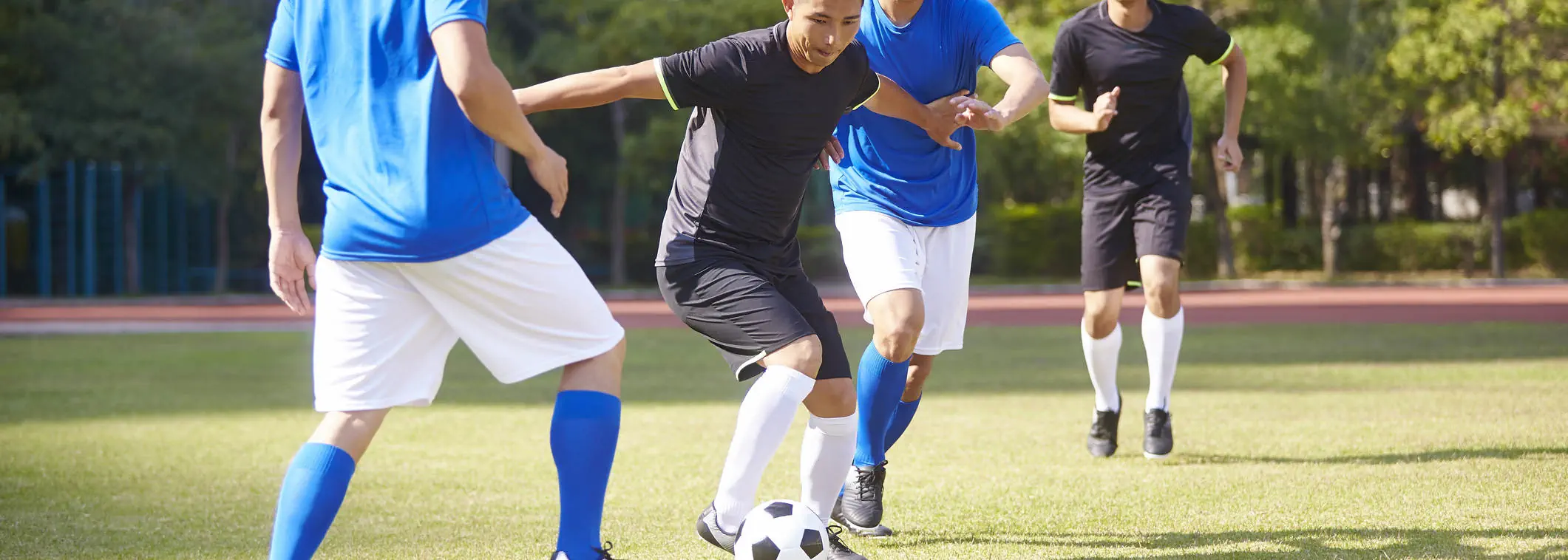The four main stabilising ligaments in the knee that connect the thighbone (femur) to the shin bone (tibia) are the anterior cruciate ligament (ACL), posterior cruciate ligament (PCL), medial collateral ligament (MCL), and lateral collateral ligament (LCL).
The medial collateral ligament (MCL) is located on the side of your knee joint. It goes from the inside of the upper shin bone (tibia) to the inside of the bottom of the thigh bone (femur) and keeps your shin bone stable.
The medial collateral ligament is usually injured by pressure or stress to the outside part of the knee. This force causes the outside of the knee to buckle, and the inside to widen. When the medial collateral ligament is stretched too far, it is susceptible to tearing and injury. This injury can be caused by the action of ‘clipping’ in a football game.

Injury to this ligament can be a stretch, partial tear, or complete tear. There are three grades of an MCL injury:
|
Grade 1 |
Incomplete tear of the ligament with mild symptoms |
|
Grade 2 |
Incomplete tear with instability and moderate symptoms |
|
Grade 3 |
Complete tear with instability and severe symptoms; other ligaments in the knee may also be torn |
Medial Collateral Ligament (MCL) injury symptoms
Medial Collateral Ligament (MCL) injury diagnosis
Your doctor would first question your general health and symptoms before conducting a thorough physical examination.
Diagnosis is made based on your reported symptoms, physical examination, and investigations.
In order to assess your knee function, your doctor ask you to move your knee in different directions. Imaging tests such as X-ray, MRI, and CT scan may also be done.
Medial Collateral Ligament (MCL) injury treatment options
Treatment for MCL injuries include non-surgical and surgical options, depending on the extent of injury:
Make an appointment at Gleneagles Hospitals
If you suspect you might have an MCL injury, get in touch with us to find out more about our Orthopaedic Services at your nearest Gleneagles Hospital.
Gleneagles Hospital works with orthopaedic specialists to assist patients through diagnosis and treatment. The caring and multidisciplinary team of healthcare professionals are available for consultation and to provide the best care.

Wait a minute